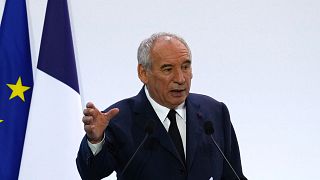Economy
The restructuring by Barclays bank of its African subsidiary is related to the global regulatory environment and not the unfavorable economic situation on the continent, the CEO of Barclays Africa Maria Ramos has said.
“We did not take this decision because of an economic cycle. The environment of global regulations has changed and it’s harder for the big banks to have subsidiaries such as ours,” assured Ramos who is also the Chief Executive Officer of Absa Group.
Barclays parent company holds 62.3% stake in its African subsidiary, Barclays Africa, and announced in early March that it intends to reduce its stake to 20% in two to three years.
“This is not a problem with the African continent, on the contrary,” says Ramos, “Barclays is a UK bank and therefore subject to British taxation including its assets abroad.”
Maria Ramos: Changes in global banking regulatory environment made it difficult for Barclays PLC to own a subsidiary like Barclays Africa
— Barclays Africa (@BarclaysAfrica) March 1, 2016
The Absa head explains for example that the return on equity of the African subsidiary (17% in 2015) is halved due to the overall burden on the parent bank.
Barclays, present in twelve African countries, will sell most of its shares for a value estimated at $3 billion.
“We are only at the beginning of the process but I can tell you that since the announcement there is already a lot of interest,” said the South African business leader.
Tougher banking regulation is making it too difficult for #Barclays to hold on to its operations in Africa. https://t.co/jRY54zcSmY
— mailandguardian (@mailandguardian) March 9, 2016
According to observers, Bob Diamond, the former CEO of Barclays, could be interested in repurchasing shares, through its holding company Atlas Mara which is already present in some African countries.
The British bank is reducing its ambitions to focus on its two key markets, the US and Britain.













Go to video
Gaza’s scarcity of cash fuels desperation, sparks unusual trade
01:08
Dancehall superstar Shatta Wale urges young people to back President Mahama
01:53
SMES under pressure as business confidence hits four-year low in South Africa
01:05
Lesotho declares two-year state of disaster amid US tariff fallout
01:54
"Great economic potential in Africa": five African leaders have lunch with Trump
Go to video
Cameroon imposes significant penalties on Telecom giants Orange and MTN